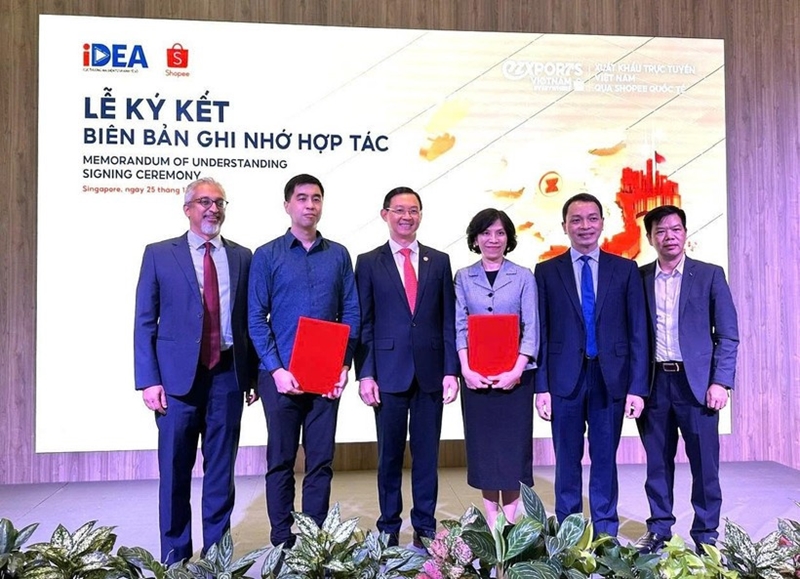The agreement aims to support the modernization of Vietnam’s national trade ecosystem by combining government policy, business capability, and technological infrastructure, the MoIT said.
    |
 |
|
The signing ceremony for an MoU between the Vietnam E-commerce and Digital Economy Agency and the Shopee Co., Ltd. on November 25 (Photo: MoIT) |
Under the MoU, the two sides will collaborate to boost B2C online exports by Vietnam’s micro, small and medium-sized enterprises (MSMEs) to ASEAN and global markets. Key activities include developing a “Vietnam pavilion” on Shopee’s international platform to showcase quality and authentic products from Vietnamese MSMEs, providing training and capacity-building for businesses on B2C online export, and implementing digital promotion campaigns across ASEAN.
Addressing the signing ceremony at the Shopee Pte., Ltd. headquarters in Singapore, Lai Viet Anh, Deputy Director of the agency, highlighted the robust growth of e-commerce in recent years, which has positioned Southeast Asia as one of the world’s most dynamic digital markets.
The e-Economy SEA 2024 report shows ASEAN’s e-commerce revenue reached 159 billion USD in 2024, up 14% year on year. Vietnam contributed 22 billion USD, an increase of 18% placing it among the region’s leading markets.
Anh noted that in Vietnam, e-commerce has become not only a driving force of the digital economy but also a key enabler of broader digital transformation. It provides consumers with access to diverse domestic and international products, while helping SMEs optimize costs, expand sales channels, strengthen their presence in the domestic market, and access global markets.
She emphasized that the country’s achievements stem from long-term and consistent government policies supporting e-commerce development. These include five-year national master plans since 2006, most recently the National Master Plan for E-commerce Development for 2026–2030, and the Prime Minister's Directive 29/CT-TTg on focal tasks and measures for promoting exports and expanding overseas markets. The MoIT is also drafting an e-commerce law expected to be submitted to the National Assembly for approval in December 2025.
These policy frameworks identify cross-border e-commerce as a strategic pillar for building a sustainable digital export ecosystem, enhancing the international competitiveness of Vietnamese enterprises, and helping Vietnamese products reach more global consumers. They also aim to maintain Vietnam’s position among the fastest-growing e-commerce markets in the region and the world.
The official added the ministry has been implementing practical programs to strengthen the capacity of MSMEs through training in e-commerce application, digital marketing, logistics, and supply chain management on digital platforms. Additional support activities will continue to help Vietnamese enterprises develop effectively and seize new opportunities in the digital export landscape.
Source: VNA